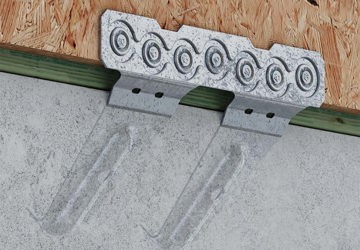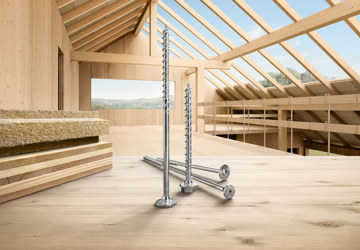
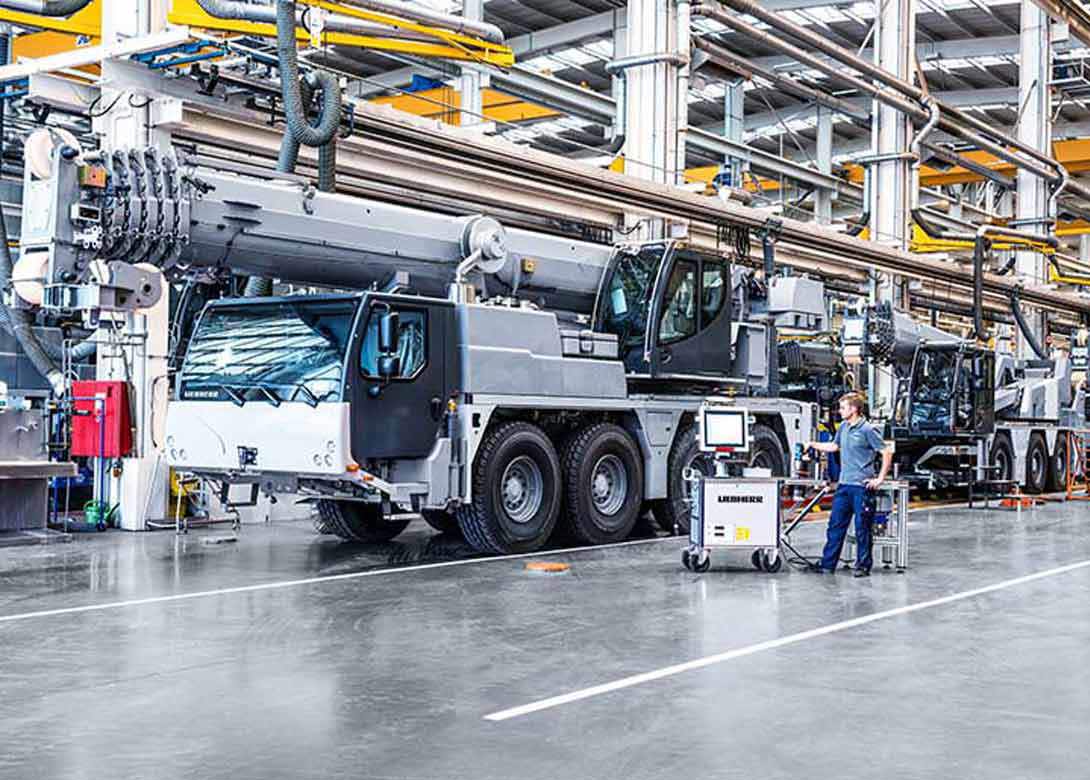
Well before you reach the factory gates, you can see them towering in the distance - the booms of the huge mobile cranes that undergo the most rigorous testing on the test site at Ehingen, Germany before they are delivered to every corner of the world.
These cranes are built by Liebherr, the global corporation now managed by the third generation of the same family. To meet its own high standards, Liebherr opts for the cerTest mobile test system from Kistler for all power tools in use on its production lines. With the help of this system, power tools are tested regularly to ensure that they deliver consistently high-quality throughout their lifetimes – and cerTest also includes end-to-end documentation of all simulated fastening scenarios.
Starting out from its core business in the construction machines segment, Liebherr has expanded into business fields such as transportation and traffic technology, mechanical engineering and domestic appliances in recent years, and it has even opened its own hotel chain. With sales approaching €10 billion and over 43,000 employees in 2017, there can be no doubt that Liebherr numbers among the global players in the sector. The entire mobile cranes business is focused here at the company's Ehingen site. All Liebherr's mobile cranes, in all their different versions, are built here: ranging from all-terrain vehicles with telescopic booms (offering both on road and off road capability) to crawler cranes with lattice booms. The largest crawler crane in Liebherr's range, the LR 13000, was recently deployed in Mexico for the construction of a refinery. This machine can lift weights of up to 3,000 tonnes.
"We manufacture complete vehicles here on four lines – an average of about eight vehicles every day, all of them built to order and just-in- time. Before delivery, they undergo extensive testing on our test sites: we have one for mobile cranes and another for crawlers,” explains Thomas Nüssle, head of plant planning at the Ehingen site. "Quality has top priority in our book. Through- out the world, Liebherr is appreciated for its outstanding products. And to make sure that this remains so, we work continuously on improving our processes in every area, including fastening technology.”
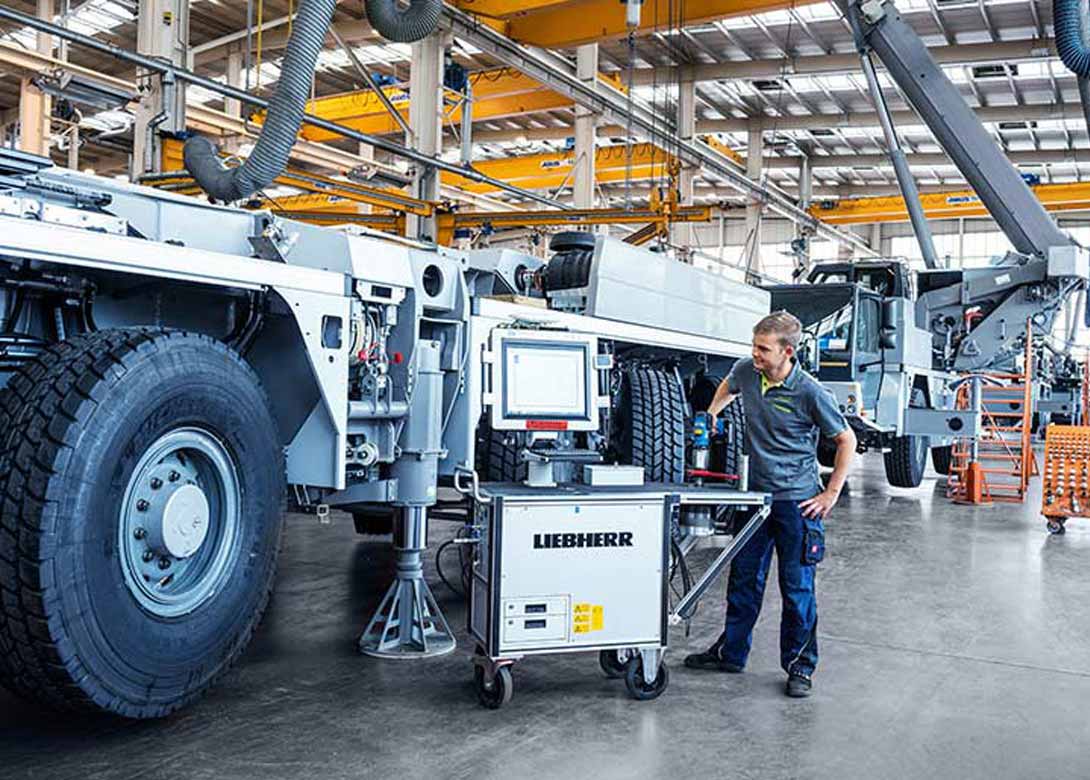
In-house testing cuts costs and builds up know-how
Many different torque tools are used in the manufacture of mobile cranes. To ensure its machine capability, Liebherr deploys the cerTest mobile test system by Kistler. Thanks to cerTest, all the facility’s power tools can be tested regularly on site; all the results are documented precisely, with torque and rotation angle control.
"We currently use 128 torque wrenches from different manufacturers, and all of them have to be tested. As of 2018, we've been carrying out our own machine capability analyses based on four test points as per VDI 2645. We also carry out tests related to fastening points. We use nutrunners with different technologies for 'A', 'B' and 'C' joints – with electronic or hydraulic control, or with compressed air. Thanks to this new test stand from Kistler, we can successfully meet higher quality requirements. We base our work here on the strict standards specified by the automotive industry, which requires a machine capability index of Cm/Cmk > 1.6,” comments Heiko Springer, project engineer in the plant planning department at Liebherr Ehingen.
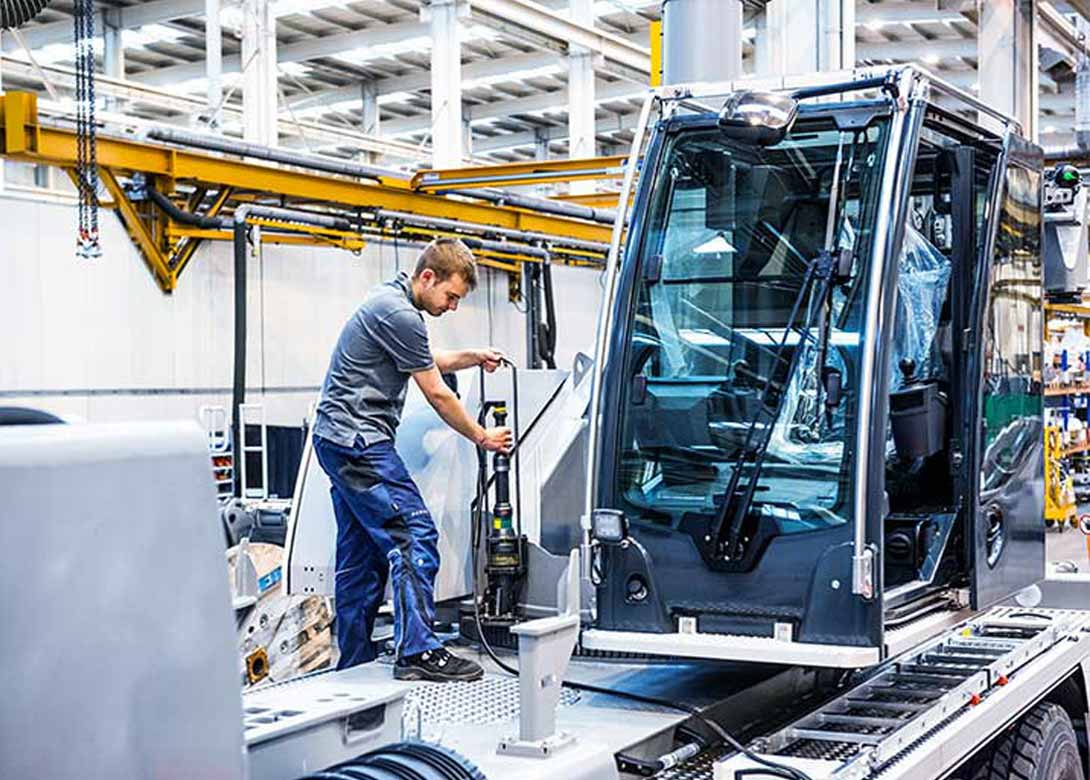
End-to-end documentation for all tools
The cerTest system has four simulators (two integrated and two external) to test power tools in the torque range from 250 to 6,000Nm. This allows dynamic simulation of all joint hardnesses up to 6,000Nm. And for tests related to fastening points, it delivers precise statements about the current performance of the tested power tools after 25 measurements. The simulator also rotates synchronously during the dynamic test. The advantage of this approach over the static method is that it allows simulation of "hard" joints (with a small angle of rotation) as well as "soft" ones (with a large angle of rotation). End-to-end documentation for all tools and the main joints creates an accurate picture of a machine's capability throughout its entire life expectancy.
Thanks to cerTest, Liebherr saves about €30,000 on external testing costs each year – and as an added bonus, the company can build up its own valuable know-how on fastening technology here in house.
"On the one hand, we save on costs – but that's by no means all: It's also easier to ensure the quality of our internal fastening pro- cesses. What's more, the quality is better than when tests are out- sourced, because testing can take place under the conditions that are present right here on-site (electronic control or compressed air fluctuations, for instance). Another point is that we're building up know-how on handling power tools. And last but not least, the logistics are more efficient: we eliminate the cost of sending the tools out and sorting them back in again. We gain extra time by testing right here on the spot," says Heiko.
Because the Kistler test stand is mobile, all the power tools can be tested near the production lines. For this purpose, cerTest is equipped with a rechargeable battery that has a lifetime of up to 16 hours.

Having spent a decade in the fastener industry experiencing every facet – from steel mills, fastener manufacturers, wholesalers, distributors, as well as machinery builders and plating + coating companies, Claire has developed an in-depth knowledge of all things fasteners.
Alongside visiting numerous companies, exhibitions and conferences around the world, Claire has also interviewed high profile figures – focusing on key topics impacting the sector and making sure readers stay up to date with the latest developments within the industry.




